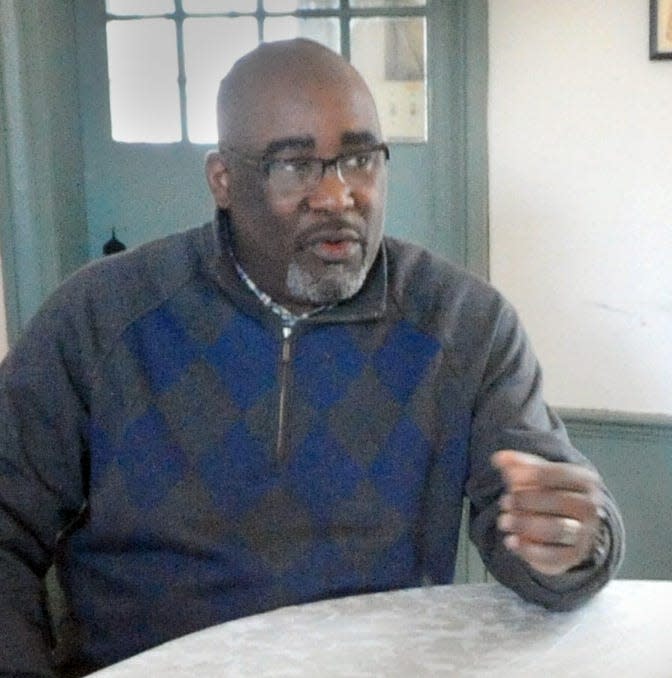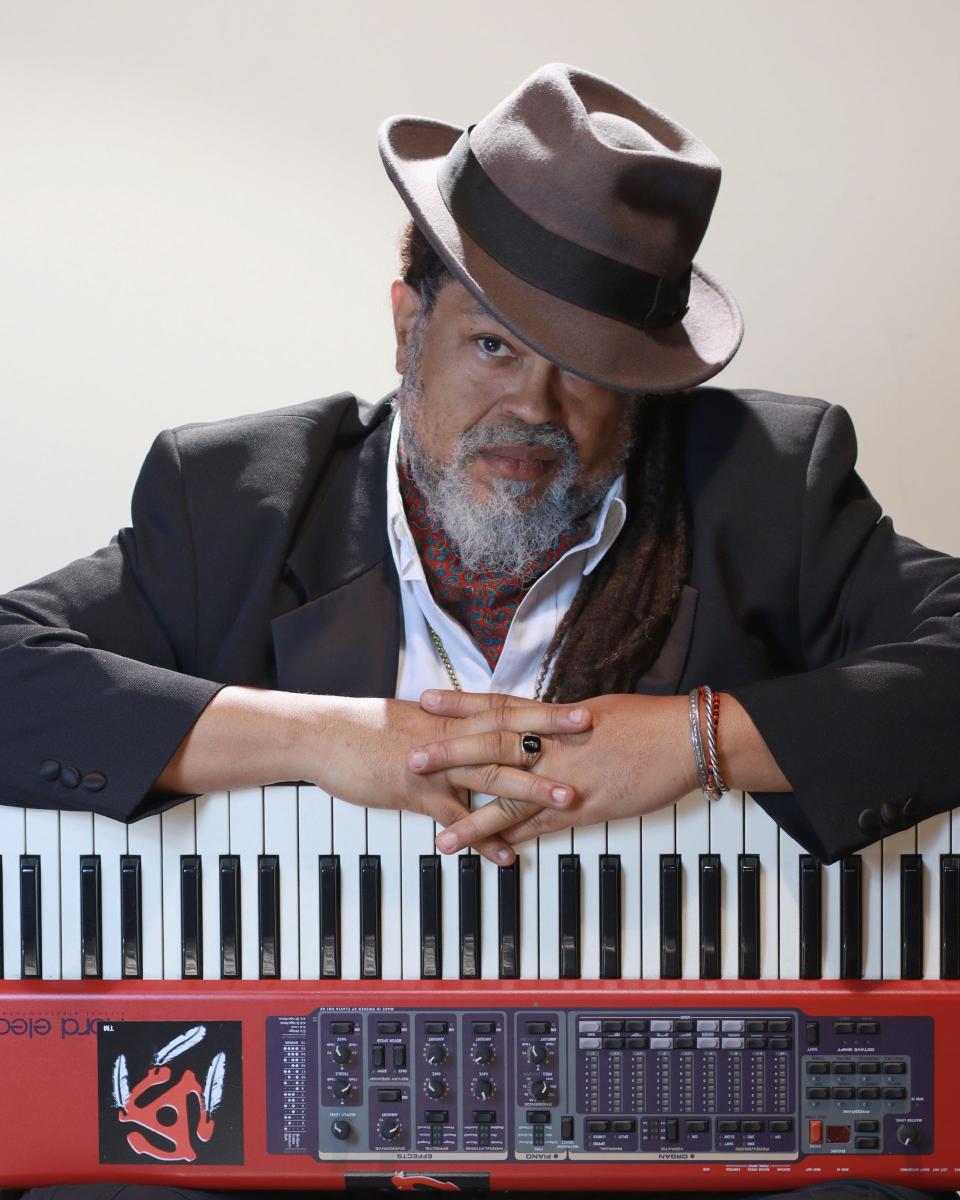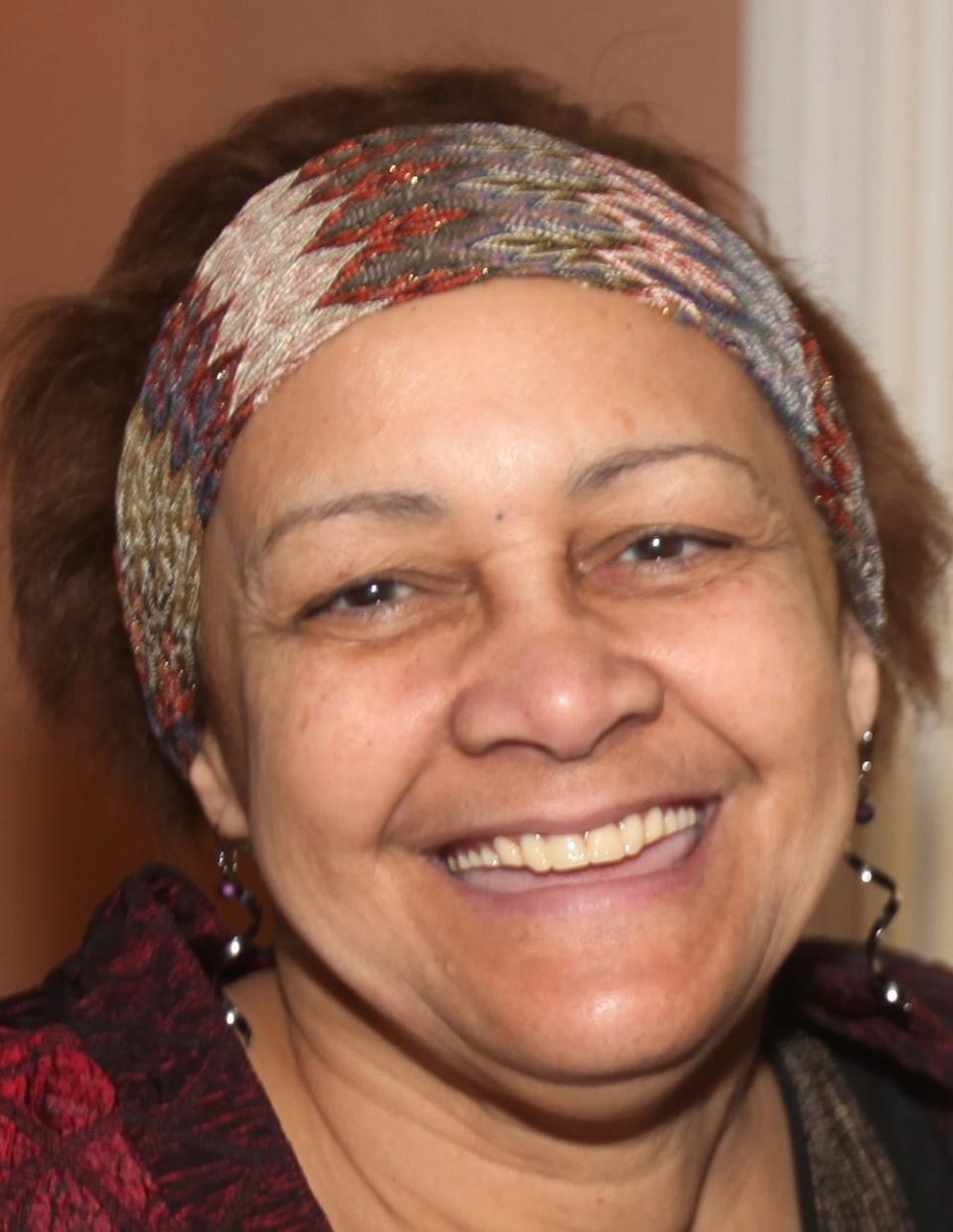Colonialism key part of Queen Elizabeth II's legacy for Cape Cod communities of color
- Oops!Something went wrong.Please try again later.
As a 6-year-old school girl, Beverly Roberts waited on a side street in Trinidad, with the rest of her classmates, to catch a glimpse of Queen Elizabeth II.
"I was excited and I was waving a flag. I remember she was wearing a hat," said Roberts, a Marstons Mills resident interviewed after the queen, Britain's longest-reigning monarch, died on Sept. 8. "I felt privileged. Everything was perfect. I remember her pearls, and her bag."
A funeral for Queen Elizabeth is set for Monday.
The year was 1966, four years after Trinidad and Tobago gained independence from Great Britain.
At that time, there was still an air of respect that surrounded the monarchy, Roberts said. Even when she saw the queen again in 1985, Trinidadian people celebrated her arrival.
More: The complexity of mourning Queen Elizabeth II and questioning her legacy
"She came on her yacht, came down the ramp and waved and smiled. She then stood by to watch the pomp and ceremony," Roberts said. "We were able to see her up close and see her color guard and hear her band play."
Since migrating the the U.S., Beverly Roberts has grown more aware of the effects of the British monarchy
While Beverly Roberts was once enamored by Queen Elizabeth, since migrating to the United States in 1996 she said she's grown more aware of how the monarchy has affected people in Trinidad and Tobago, as well as in 56 countries around the world that were — at one time — colonized by Britain.
While the myriad of nations are referred to as "commonwealth realms," Roberts said there are currently 15 countries held by Britain including Antigua and Barbuda, Australia, The Bahamas, Belize, Canada, Grenada, Jamaica, New Zealand, Papua New Guinea, Saint Kitts and Nevis, Saint Lucia, Saint Vincent and the Grenadines, Solomon Islands, Tuvalu, and, of course, the United Kingdom.
Barbados was the most recent country to gain its independence from Britain in December 2021.
More: Mourners wait more than 9 hours to pay respects to Queen Elizabeth II
While Beverly Roberts said she empathizes with Queen Elizabeth's family during this time of sorrow, she is dismayed at the legacy of colonization that's been left behind.
"A life was lost and they are grieving," she said. "But it's a shame the monarchy continues in the midst of all the suffering and poverty."
But not everyone in her home country feels that way, she said. Many Trinidadians are mourning the queen's death.
"Some even post pictures of her on their social media pages and say she shouldn’t be blamed for the wrongs of her ancestors," she said.
The legacy of colonization is long
Earl Roberts, Beverly Roberts' husband is a pastor at Marstons Mills Community Church, and said people of the African diaspora hold ambivalent views towards the British empire.

For roughly 200 years, beginning in 1796 after the British crown drove Spanish forces out of Trinidad and Tobago, Britain influenced culture, and political and educational systems. Even up until recently, the country's jurisprudence and system of laws were modeled after the British and the House of Lords, Earl Roberts said.
More: Massachusetts, Florida and Texas politicians react to migrants flown to Martha's Vineyard
"The English are an indelible part of who we are as individuals," he said. "Much of the ethnicity of our very nation was due to our colonialism."
He also never forgets that his people were brought to the Caribbean to form a sugar colony, and to be commercially exploited as free labor.
"Our ancestors were enslaved, brought here, and worked to death," he said. "And that was all to fill the pockets of British merchants and land-owning classes including Queen Elizabeth and her family."
Even after the abolition of slavery, said Earl Roberts, British land owners still exploited resources for their benefit through the mercantile system.
More: Queen Elizabeth's death stirs debate about colonialism, slavery and British racism
"They paid us pennies to produce raw material, which was then turned into finished goods in England. We then had to buy those finished goods at market rates," he said. "And the market rate was whatever the English decided they were. We enriched King Charles III, Queen Elizabeth, and King George VI and King Edward VIII before them."
British invasion of Native land
Let's also not forget the Crown's early imperialism of Native tribal lands, said Morgan "Mwalim" Peters, a member of the Mashpee Wampanoag Tribe. English colonists and European settlers made their way throughout Wampanoag and other tribal territories beginning in the late 1500s.

Amid the fanfare of Queen Elizabeth's death, Peters, who is also a Grammy-award winning musician and member of the Groovalottos, wants the monarchy to return Indigenous remains, and ceremonial items to the tribe.
Many tribal items were taken by British explorers, or "colonizers," Peters said throughout the early years of European contact. If these collected items were deemed valuable, he said, they were handed over to the Crown.
"When the tribe got federal recognition and made a request to obtain our items, the Crown decided we weren't actually a sovereign nation," he said. "The Queen was remarkably arrogant and said if we don't have a nation, we have no place."
More: When businesses speak out: Bread and Roses latest shop to venture into activism
But it's not just tribal items the monarchy is holding onto, said Peters, who also descends from Barbados. Much of the wealth within British control was stolen from colonized countries around the globe. Queen Elizabeth, quite literally, he said, was often adorned in diamonds, gold and jewels that were stripped from other nations, including the Great Star of Africa, which sits on top of the queen's scepter.
As he watched many people revere Queen Elizabeth across media outlets and social media channels, Peters said he reflected on the teachings students receive in America about the monarchy, and the absence of historical context surrounding the effects of colonization.
"An interesting aspect of white supremacy and dominion, is that we are basically, on all levels, taught to celebrate our oppressors," he said. "We are taught to give them a pass and see them as great people who were reflective of the times in which they lived."
More: What is Indigenous tattooing? In New Bedford, and Denmark, women artists revive the practice
Peters said it's the same in the United States when slave owners like George Washington and Thomas Jefferson are celebrated.
"When Queen Elizabeth dies, we are supposed to feel bad. But the thing about it is, she's still a monarch," he said. "The legacy she controlled for upwards of 70 years, is just being passed on to somebody else who was raised to be an imperialist just like her."
Too little too late
David Purdy of the Martin Luther King, Jr. Action Team, was a young man when Queen Elizabeth was crowned in 1953. Over the years, he's become accustomed to her presence and saw her as a formal constant within American segments of society.
Despite being numb to her existence, Purdy said he was puzzled by the constant glorification that surrounded her reign when she died.
"People are just salivating over her death," he said.
More: "Absolutely no limits': Cape Codders react to Ketanji Brown Jackson's confirmation
Although many countries suffered, over time, from the impacts of colonization, he said Queen Elizabeth did step aside in many instances, allowing countries like Barbados to gain independence. While she may not have been happy about it, she didn't declare war.
"She didn’t insist that these countries remain in their orbit. Certainly she was open to some of the changes that took place as segments of the empire's colonialism dissolved," he said. "But all was not well under her rule."
British monarchy couldn't conquer all
Muska Yousuf, a family law attorney and Cape resident, said the effects of British colonialism are felt even in nations that weren't conquered by the monarchy.
Before Yousuf migrated to the United States from Afghanistan as a young girl, she remembers learning about Britain's several attempts at colonizing her home country during three conflicts throughout the Afghan Wars in 1839, 1878, and 1919.

Yousuf called Afghanistan "the graveyard of empires," because nearly every super power has unsuccessfully attempted to conquer Afghanistan.
"Afghanistan is in absolute disrepair because it's constantly defending itself against different empires coming in," she said. "It's never been able to develop into a strong country because it's constantly being attacked."
The same can be said about all the colonies of Britain, Yousuf said.
"There's so much devastation," she said.
The more people refuse to acknowledge the destruction caused by imperialist countries like Britain and the United States, the harder it is to hold baseline discussions surrounding race relations, and systemic issues, she said.
The crown passes hands
As King Charles III takes the helm of the monarchy, Yousuf said it would take tremendous amounts of self-realization and introspection for him to understand and apologize for what the British monarchy has done to colonies under its rule.
"There's the possibility of making actionable changes," she said. "I don't know if that's independence, or if it’s reparations. But something needs to be done."
Barbara Burgo, a Brewster resident and critical race theorist, said colonization needs to end.
"The monarchy, the institution has oppressed so many people," Burgo said. "We must remember and tell the true history of these super powers."

While Cape Verde was colonized by Portugal, and gained its independence in July 1975, she said her people suffered and still suffer as a result of Portuguese rule.
"I don’t want to be one of those that shows inhumanity as this queen is laid to rest. But I have been mourning for decades what they have done to folks like me," she said. "The whole world has been looking the other way for far too long."
For Peters, Queen Elizabeth is a representation of white supremacy and imperialism.
"She is a symbol," he said. "There’s still everyone that stands behind her."
At a human level, said Earl Roberts, nobody rejoices in someone’s death.
"We are sorry that she died," he said. "But on the other hand, she was living in the lap of luxury and much of that luxury was taken from the exploitation and the enslavement of our ancestors."
Keep connected with the Cape. Download our free app.
This article originally appeared on Cape Cod Times: Colonialism part of Queen Elizabeth II's legacy for communities of color

